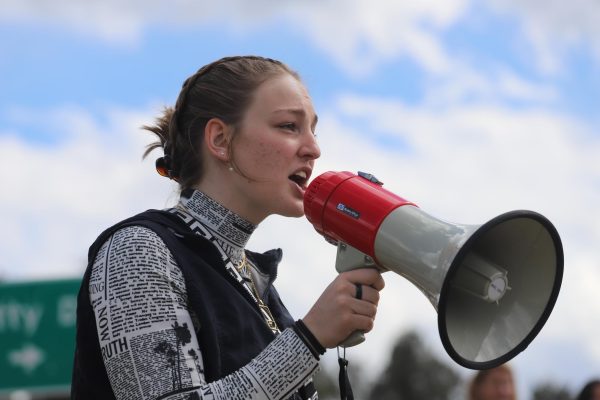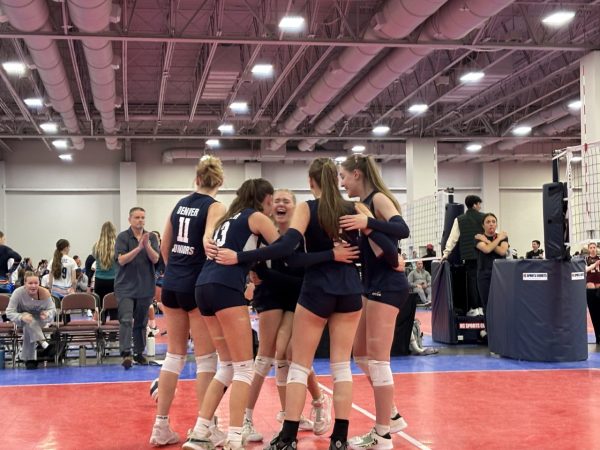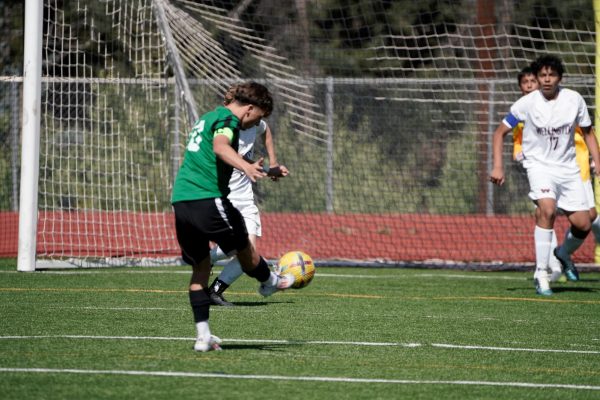Title IX: It’s About More Than Equity
For sexual assault survivors Title IX bill goes beyond equal access to sports

SafeBAE offers student education and support for sexual assault survivors
Sophomore Ella Johnson could probably crush you in the 400 meter dash… or in a debate on the importance of equity in high school sports. This athlete-turned-activist is using her passion for athletics to defend Title IX.
Title IX is the federal law that prohibits discrimination on the basis of sex in any federally funded activity, which chiefly affects high school classrooms and sports programs. This bill is typically associated with increased funding and opportunities for female athletes, but it also provides a platform for survivors of sexual assault and harassment to be heard.
“I’m working with this nonprofit called SafeBAE: Safe Before Anything Else,” Johnson said. “It was founded by a close friend of mine as a way to advocate for sexual assault survivors, but it morphed into an advocacy for women’s rights over the years.”
This organization is youth-led and seeks to shift the culture of silence, shame, and inaction that surrounds student survivors of sexual assault through education. The organization informs students of their protections under Title IX in addition to providing mental health support for survivors.
“I was trained a few months ago to become a junior sexual assault community peer educator, and something I’ve been working with is the concept of emotional healing through sports,” Johnson said.
This journey of healing has brought Johnson everywhere from the track to the basketball court, allowing her to educate peers on the importance of Title IX along the way. However, the protections this bill offers are far from guaranteed.
Changes to the bill that went into effect on August 14th, 2020 allow a school to dismiss assault cases if the alleged perpetrator is no longer enrolled as a student or employed by the school, and do not allow students who have transferred and/or graduated from the district to file a complaint, as opposed to the previous legislature that required all complaints to be looked into.
Additionally, bill S.251 seeks to recognize sex solely based upon an individual’s reproductive biology and genetics at birth for purposes of determining compliance with Title IX, which has the potential to threaten Title IX protections for transgender students and athletes. This bill has already been introduced and is scheduled for a Senate hearing later this year.
With repeated changes to Title IX leaving many students uncertain, Johnson, working with SafeBAE, decided to take action.
“We are trying to start this campaign that emphasizes the importance of sports, not just from a financial standpoint but from the standpoint of mental health, physical health, and women’s health,” Johnson said.
The campaign will be run through SafeBAE’s social media platforms later this month and seeks to bring awareness to the crucial role sports play in the lives of female athletes. The campaign relies on an unlikely medium: photography.
“I’m taking photos of women in their element, doing something that they absolutely love,” Johnson said.
Johnson has been photographing her basketball team to better illustrate the way in which Title IX allows women in sports to have equitable access, protection, and opportunities to follow their passion. At the end of the day, however, the campaign is not about this year’s high school sports but rather the legacy built by legislature like Title IX. Students interested in learning more about Title IX and how to support survivors of sexual assault may attend SafeBAE’s Virtual Consent Summit from February 25-27.
“We are trying to set a precedent around the importance of women’s sports,” Johnson said. “Not just for the school’s benefit or an individual’s benefit, but for the benefit of the community.”







